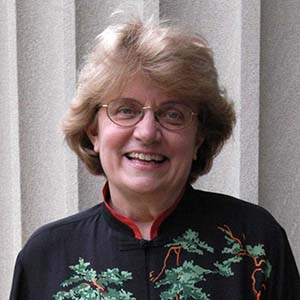Nancy Hopkins

A relentlessly curious problem solver, Nancy Hopkins has made seminal discoveries in the fields of gene regulation, cancer-causing viruses, and vertebrate development. Not only is Dr. Hopkins a spectacular biologist, she has also been a pioneer in advancing the role of women in science. She initiated a campaign and has been a passionate advocate for the equitable treatment of female scientists in academia. Her efforts have helped to ensure that the nation’s scientific talent is put to its best use.
Dr. Hopkins was born and raised in Manhattan. She attended The Spence School, where she realized her passion for science and math. As an undergraduate at Radcliffe College, she took a biology course and was electrified to learn about DNA. She became fascinated by the question of how genes are turned on and off.
Dr. Hopkins joined Mark Ptashne’s lab at Harvard, where she showed that a protein in a bacterial virus binds to specific DNA sequences to control gene expression. After earning her Ph.D., she did a postdoctoral fellowship with Robert Pollack and James Watson at Cold Spring Harbor Laboratory, studying viruses that induce tumors in animals. In 1973, she joined the faculty at the Massachusetts Institute of Technology, where she discovered mechanisms by which tumor viruses cause blood cancers, and the determinants of what hosts they can infect. She went on to develop methods for genetic analysis of zebrafish, which has become a premier model system for understanding vertebrate development and cancer biology. She is now the Amgen, Inc. Professor of Biology Emerita at the Massachusetts Institute of Technology.
As a professor at MIT, Dr. Hopkins recognized that institutions were systematically impeding the ability of female scientists to advance, garner resources, and gain recognition for their achievements. She organized her colleagues and thus launched a movement. The 1999 report that grew from her work as chair of the First Committee on Women Faculty in the School of Science at MIT has catalyzed a national movement to promote and ensure equity for women in science.
Among her many honors and awards, Dr. Hopkins is an elected member of the National Academy of Sciences, the National Academy of Medicine, and the American Academy of Arts and Sciences.